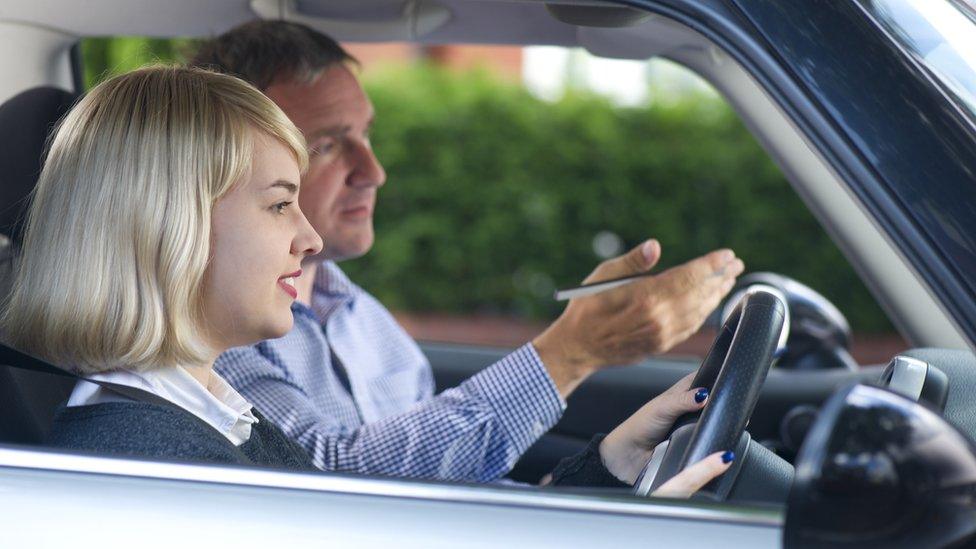Graduated driving licences: 'The crash was down to inexperience'
- Published
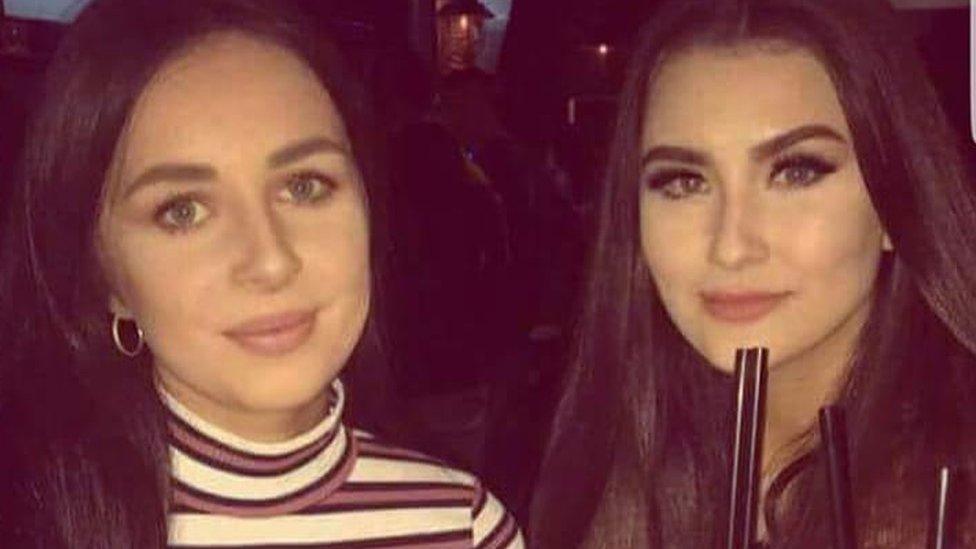
Caitlin Huddleston and Skye Mitchell were both 18 when they died
Aidan Huddleston was lying in bed on a Friday evening when he got a call telling him his girlfriend Skye and his sister Caitlin were dead.
"I kind of realised in that moment in time, my future that I'd had with Skye, and my sister's future, had just been completely removed - and there was absolutely nothing I could do about it," he tells Radio 1 Newsbeat.
Skye Mitchell had been driving her friends Caitlin Huddleston and Ellis Marr to a restaurant near Millom in Cumbria, where they lived in July last year.
The road was new to Skye, who had passed her test only four months earlier.
She was travelling fast, but within the speed limit. It was wet.
As she turned a corner, she lost control of her car, and hit a van.
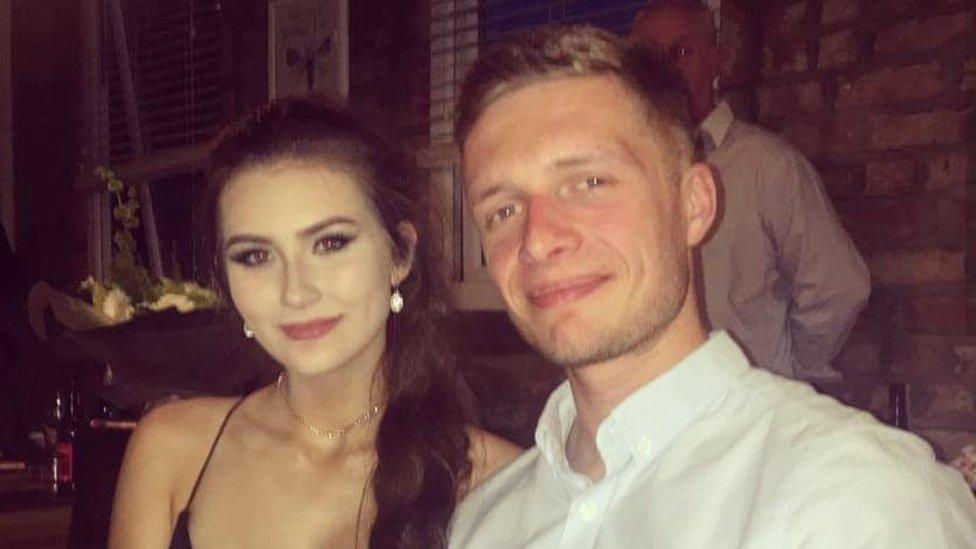
Skye and Aidan had been together for eight months
"I'd just got home from work, was lying in bed, falling asleep actually," says Aidan.
"Then the light of my phone lit up, and I noticed I had numerous messages and missed calls."
Aidan, 24, found out that night that his girlfriend and his sister had died at the scene. They were both 18.
Ellis, who was in the back seat, and the 51-year-old driver of the van were both airlifted to hospital.
Ellis stayed in hospital for five months. The van driver is still there, 14 months after the crash.
'It was all down to inexperience'
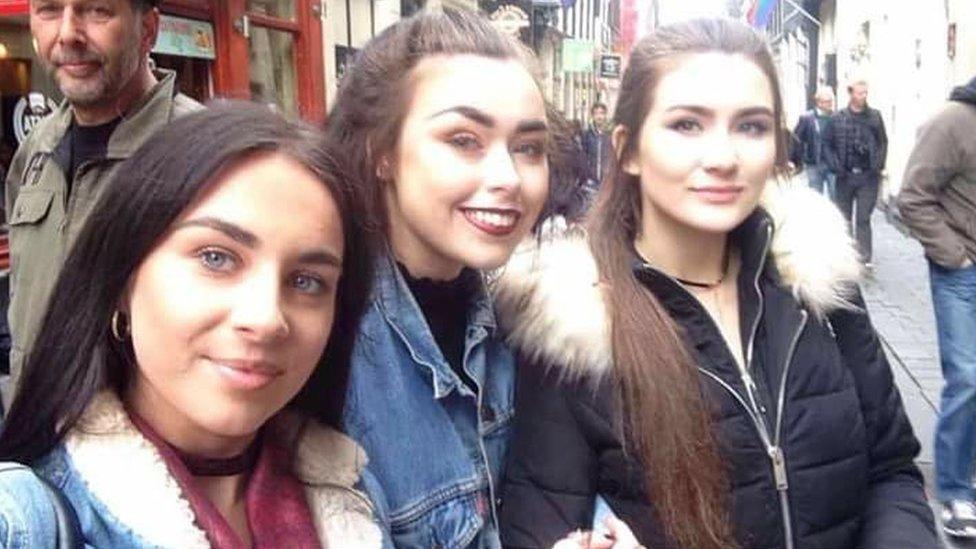
Caitlin (left) and Skye (right) had been friends since primary school, they met Ellis (centre) in Secondary school
"We do not blame Skye whatsoever for what happened," says Aidan.
"There was nothing she could have done I believe on that night. It was all down to inexperience."
That's the reason Skye and Caitlin's families are calling for graduated driving licences (GDLs).
A GDL scheme would mean restrictions for new drivers - for example a night curfew and a limit on the number of passengers they can carry.
Those restrictions could last one or two years and then be lifted as drivers gain more experience.
Aidan says that "this whole situation wouldn't have occurred" if GDLs were already in place.
"It would prevent injuries to people and it would stop families having to go through what mine and Skye's family has gone through," he says.
An RAC Foundation report, external earlier this year estimated 281 fewer people a year would be killed or seriously injured if GDLs were introduced in England, Wales and Scotland.
Northern Ireland, which already has some limits on new drivers, including a 45mph speed cap for the first year, plans to introduce the GDL in 2020.
Data from other countries which have GDLs, such as the US, external and New Zealand, external, seems to suggest it lowers the number of people killed or seriously injured by young drivers.
'It shouldn't disadvantage young people'
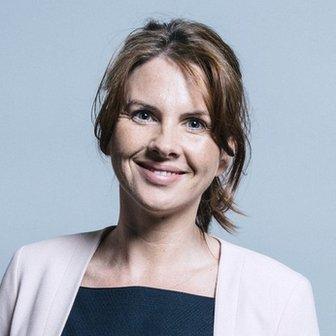
Trudy Harrison MP was driving nearby on the night of the crash
Trudy Harrison, Conservative MP for the area where Caitlin and Skye were from, was driving near her office in Bootle on the night of the crash, and was diverted as a result.
"I later learned that Skye and Caitlin were involved because my daughters came rushing downstairs to tell me about it," she tells Newsbeat.
"These young girls were very much part of our community."
Although Ms Harrison agrees "something needs to be done" to protect young drivers, she's "not in favour of all aspects of the graduated driving licence".
"I represent a very rural area in West Cumbria, and I'm very concerned that whatever is brought in should not disadvantage young people economically, in an area where we just cannot rely upon public transport."
Some examples she gives are of young parents with their children in the car or people who work outside normal hours.
She would like to see better tuition for learner drivers, cheaper insurance on safer cars - and even suggests virtual reality technology as a way to help hazard perception.
There are already voluntary measures you can take, such as displaying green probationary P plates - which show others that you've just passed your test.
'This isn't a punishment'
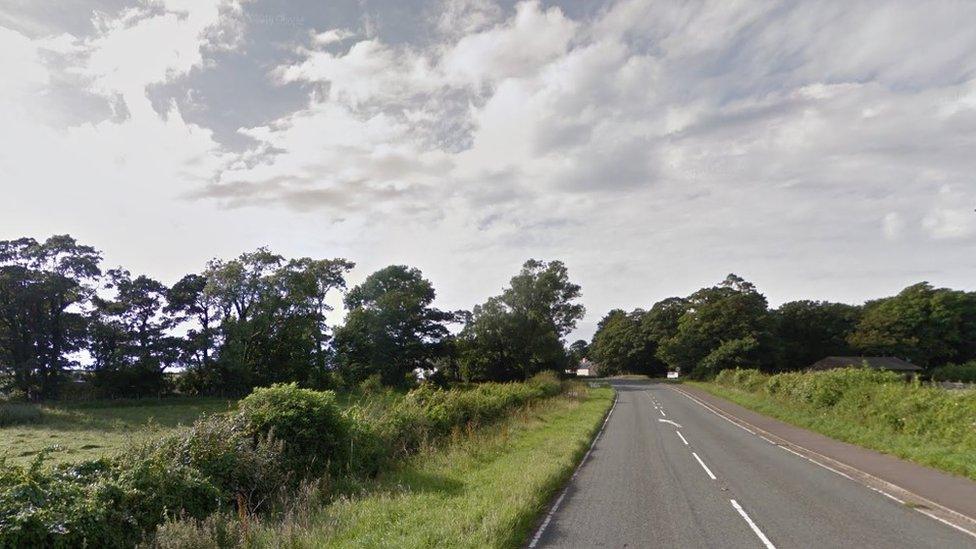
The crash happened on the A595 near Bootle
The coroner who carried out an inquest into the deaths of Skye and Caitlin has also called for GDLs to be brought into the whole of the UK.
"This isn't a punishment on young drivers," says Aidan. "This whole graduated driving licence is here to help save lives."
He does say that if the GDL was in place when he was a new driver "it would be more difficult socialising with friends, but still not impossible".
But he wouldn't trade the lives that would be saved "for a bit of a laugh with my friends".
Road safety charity Brake supports GDLs.
"The government must act now to put an end to this daily tragedy and introduce graduated driver licensing, a safety measure which is proven to work and reduce young driver crashes," Joshua Harris, Brake's director of campaigns, said in a statement.
The Department for Transport says it has decided to use the introduction of GDLs in Northern Ireland as a pilot to gather evidence on the potential for GDL across the rest of Great Britain.
'You've got to keep going'
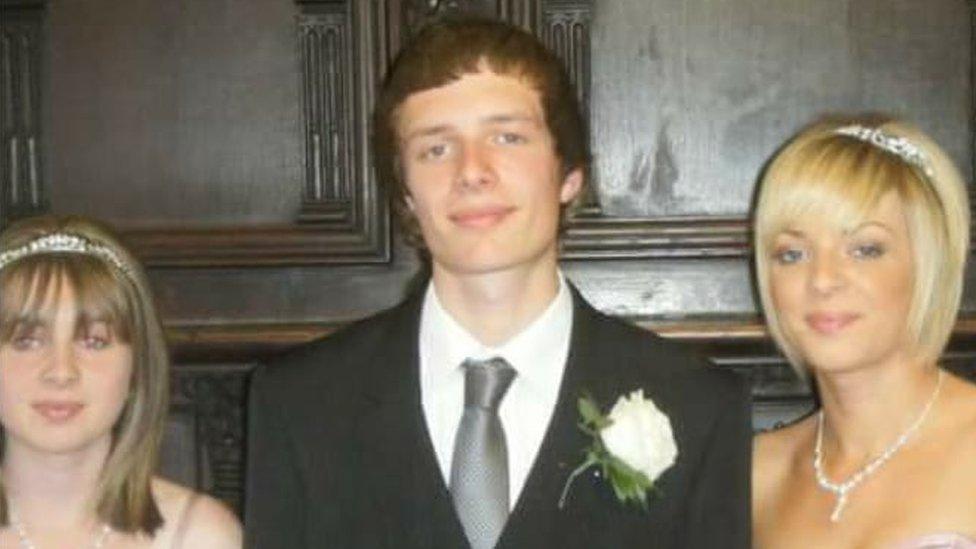
Caitlin, Aidan and their sister Hannah
More than a year on from the crash, Aidan says: "It certainly doesn't get easier, you just cope with it better.
"Some days you wake up and you don't want to do anything, but you've got to keep going."
"We truly were in love with each other," he says about Skye.
"It would only ever get easier again if they were back here."
Follow Newsbeat on Instagram, external, Facebook, external and Twitter, external.
Listen to Newsbeat live at 12:45 and 17:45 every weekday on BBC Radio 1 and 1Xtra - if you miss us you can listen back here.
- Published21 September 2018
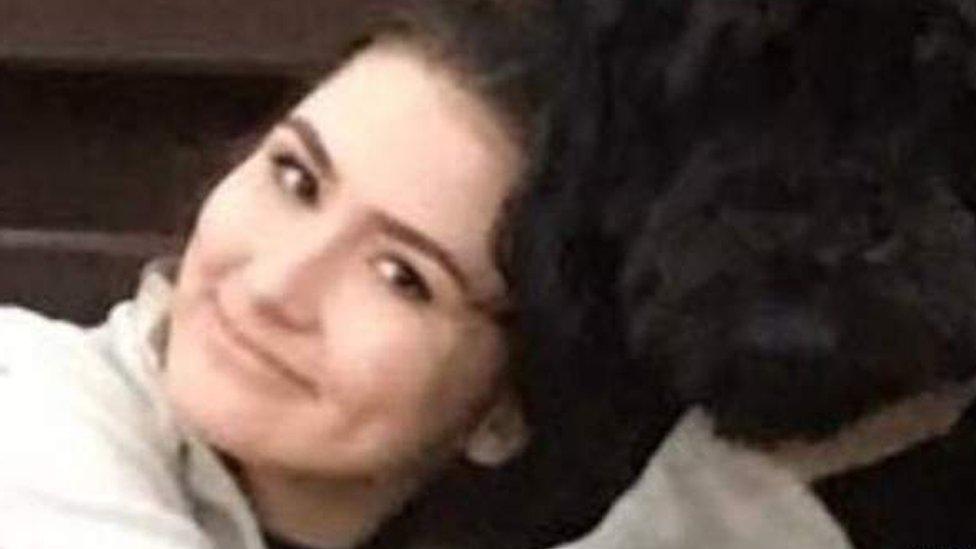
- Published16 July 2017
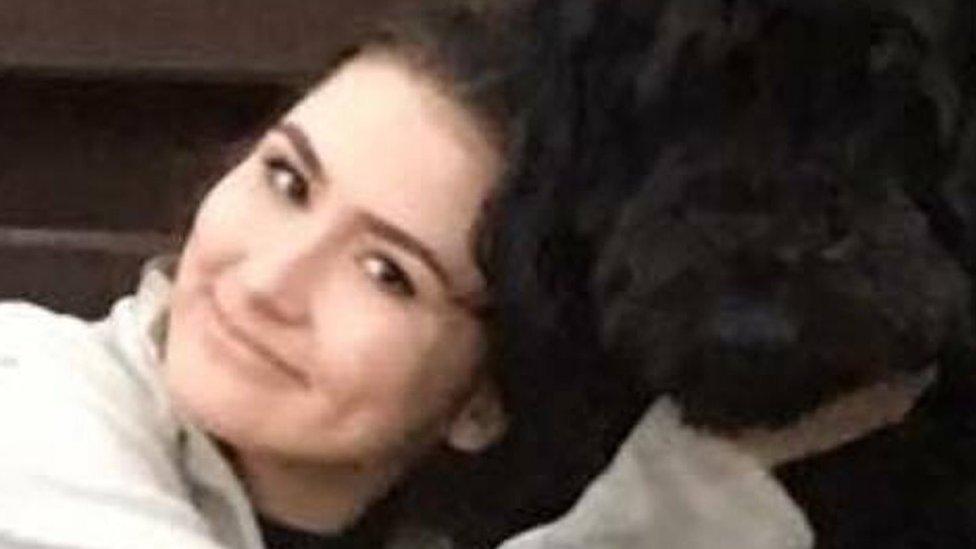
- Published5 June 2018
